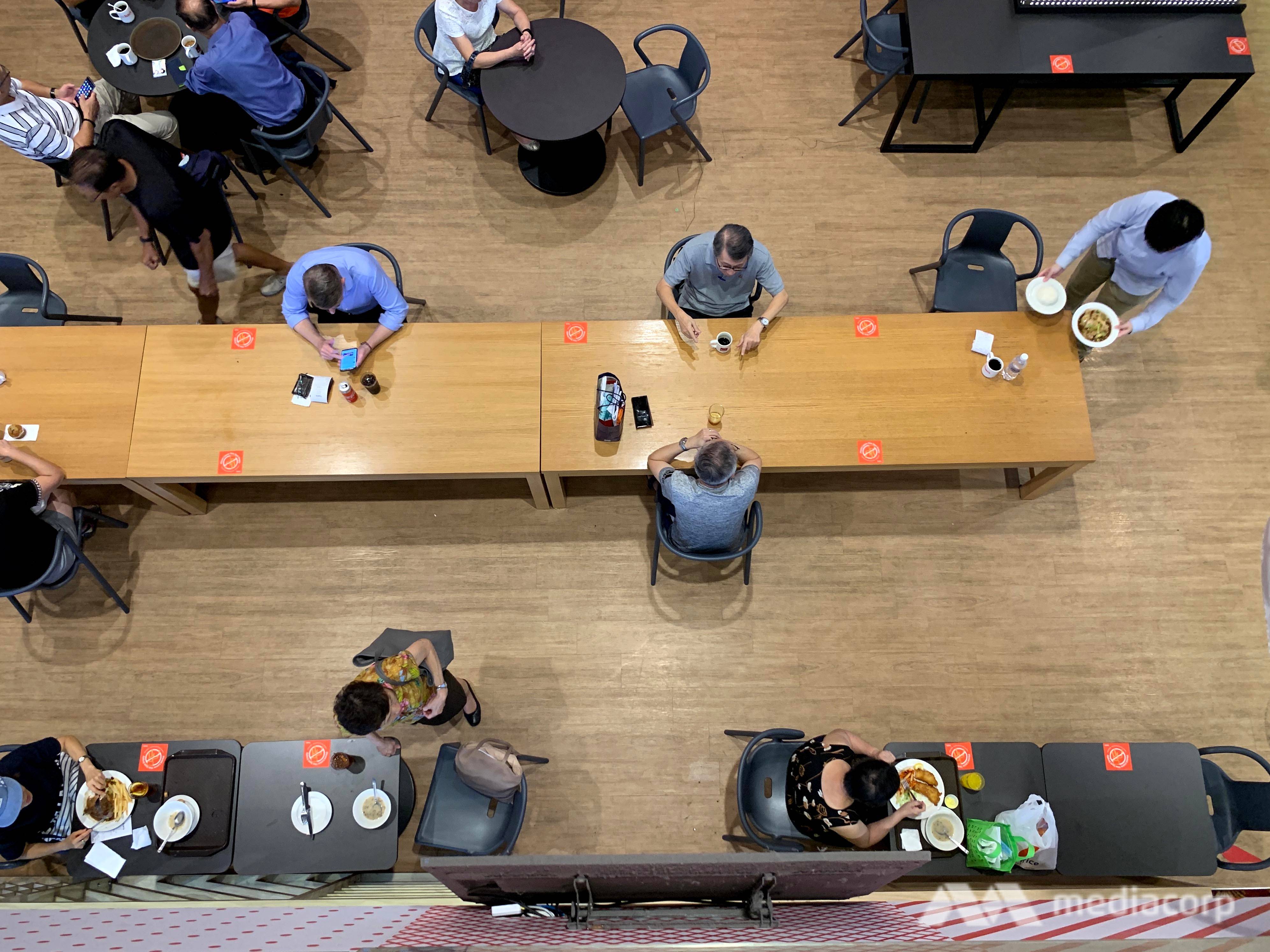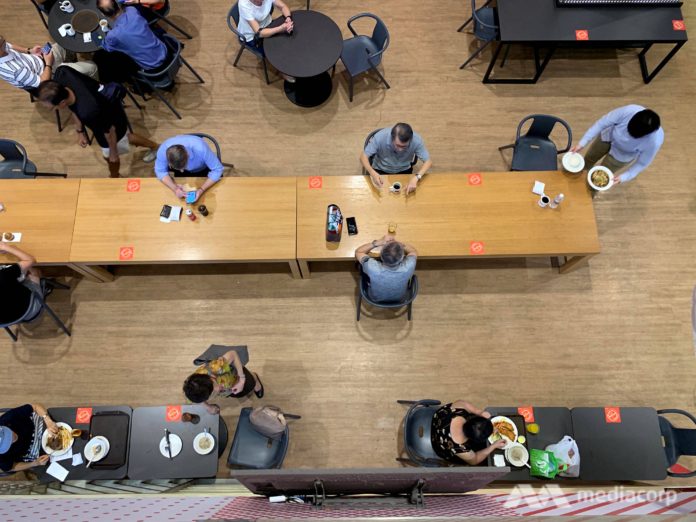SINGAPORE: The World Gourmet Summit, known for its myriad of dining events featuring culinary stars from around the world, will be postponed for the first time since it started 24 years ago.
Usually held in April, the annual gastronomy festival has been pushed back to August because of the COVID-19 situation.
“At the moment, we are looking at August. It could potentially even be September because we do not know what the future holds,” said its founder Peter Knipp in an interview with reporters on Tuesday (Mar 31).
The ramp-up in measures taken by Singapore to curb the spread of COVID-19, which include safe distancing rules in restaurants, limiting events to no more than 10 people and travel restrictions for foreign visitors, have made the postponement “a no-brainer”, he added.
“This is the first time we have to take such steps and trust me, it’s a painful one. During SARS (severe acute respiratory syndrome), we never gave up; during the (global) financial crisis, we never gave up too. But COVID-19 is a completely different ball game,” he said.
Mr Knipp, whose company Peter Knipp Holdings also runs a food and beverage (F&B) consultancy, said the industry has been hit hard as tourists stay away and locals avoid public places.
Two months since the outbreak started in Singapore, restaurateurs have seen a drastic drop of as much as 80 per cent in customers, he added.
As a result, one of the World Gourmet Summit’s partner restaurant has closed down recently, said Mr Knipp. He has also heard of others in the industry that had to let go of their employees.
“We see layoffs. We see companies that really try to keep people but they just can’t. Financially, it’s impossible,” he said.
“Despite Singapore not being completely locked down, people are fearful. They still go out but not to the same extent, so if revenues drop anywhere between 60 per cent to 80 per cent, how do you survive?” Mr Knipp added, noting that the number of restaurant closures and lay-offs will likely increase as the COVID-19 outbreak continues.
“Not everyone has a big owner (or) unlimited cash flow. The small independent operators will be the ones to go first.”
READ: Amid fears of 80% revenue loss due to COVID-19 outbreak, restaurants hope for rent rebates
A study released on Monday by restaurant booking platform Chope showed a similarly grim scenario.
Out of the 174 F&B business owners surveyed earlier this month, 93 per cent said they have seen a decline in revenue, alongside a more than 53 per cent drop in the number of reservations, the study showed.
To cut costs, 80 per cent of those polled said they are reducing staff to cut costs and a third have imposed compulsory leave for full-time employees.
Nearly four in five businesses said they are not prepared to last longer than six months if things do not get better, according to the study by Chope.
READ: COVID-19 Budget measures ‘welcome’, but may not be enough to save F&B sector: Business owners
Restaurateur Ricky Ng said the outbreak has reduced business at his two restaurants by up to 70 per cent.
For his Blue Lotus Chinese Eating House at Sentosa, the impact was almost immediate following the confirmation of Singapore’s first infection on Jan 23 as the patient had stayed at a hotel on the resort island.
The announcement of free entry into Sentosa on Mar 11 brought about temporary reprieve, but business has since taken another hit with the roll-out of stricter safe distancing rules and the recent increase in confirmed cases, he told CNA.
Over at his other restaurant along Alexandra Road, it has been “near empty” for the past two weeks as more companies in the area began implementing work-from-home policies.
CALL FOR CHANGE IN RENT STRUCTURE
To aid struggling F&B businesses, relief measures were announced by the Government as part of its stimulus packages.
As part of the record S$48 billion Resilience Budget, F&B businesses will get a 50 per cent wage offset for local employees, up from the initial 8 per cent first announced in February’s Budget.
The monthly qualifying wage ceiling will also be raised from S$3,600 to S$4,600.
This is part of the enhanced Jobs Support Scheme, which will be extended for another two quarters until the end of this year. Employers will receive three tranches of payouts in May, July and October.
Industry players have largely welcomed the increase in wage support, as manpower makes up for a big part of operating costs.
READ: Singapore’s ‘bazooka’ stimulus to cushion COVID-19 pain, but recession still on the cards: Economists
But apart from that, rent – another huge cost component for any F&B business – remains a lingering issue.
Calling for landlords to take the “initiative”, Mr Knipp said: “I just came from one restaurant where the landlord said free parking has been given – how is that going to help the restaurant to survive?
“I know of two or three other instances where the landlords wanted to increase rent. There’s no solidarity.”
The Restaurant Association of Singapore (RAS) has also voiced its disappointment with landlords here, criticising them as “dragging their feet” in translating property tax rebates given by the Government into actual rental reductions for smaller tenants.
“We continue to be concerned about rental savings for our F&B business even with the increased property tax rebate measure announced,” it said in a Facebook post last Friday.
“We hope that landlords will respond to the new measures with urgency given that F&B operators experienced a long and protracted wait for the benefits to be given to them after the Unity Budget was announced some five weeks ago.”
READ: ‘If this goes on, I might quit’: Mall tenants want rental rebates soon to counter COVID-19 hit
RAS president Vincent Tan said the association will continue negotiations with landlords, in which it has requested for rent to be based on gross turnover alone for the next six months.
This is a call that has been echoed by other business groups, such as the Singapore Retailers Association, given that most rental agreements here are made up of a fixed-base rent with a small component based on a tenant’s variable gross turnover.
A rental payment structure that is based on gross turnover will be “fair”, especially in times of drastic revenue declines amid stricter safe distancing rules, industry players have said.
“The last thing we want to do is to fire our staff so we need landlord assistance to prolong our business,” said Mr Ng.

Safe distancing measures in place at a restaurant in Chinatown Point on Thursday (March 26) (Photo: Jeremy Long)
Mr Ng added that he has been given rental reductions for his restaurant at Alexandra Road. But he declined to reveal details and would only say that the reductions will help to sustain his business.
To tide through the crisis, Blue Lotus Group has taken steps such as encouraging employees to clear their annual leave for now and possibly take unpaid leave in April and May.
Bento sets have also been added to the restaurant’s menu so as to cater to increasing demand for takeaways. Since February, the restaurant has seen a 30 per cent to 40 per cent jump in delivery orders.
Meanwhile, the COVID-19 outbreak has stalled Mr Ng’s plans to venture overseas.
His plans to open a restaurant in Australia next month, as well as another in London about three months later, will have to be shelved for at least half a year as the coronavirus continues to spread around the world.
But he said he will be making use of the downturn to re-think business strategies and has pushed on with a rebranding of his restaurant at Alexandra Road.
“This rebranding is part of our overseas strategy,” he told CNA during a soft launch of the OPIO Kitchen & Bar on Tuesday.
“We have been looking at what we have not done well and try to re-strategise so that when the recovery comes, we can ride on.”
BOOKMARK THIS: Our comprehensive coverage of the novel coronavirus and its developments
Download our app or subscribe to our Telegram channel for the latest updates on the coronavirus outbreak: https://cna.asia/telegram





